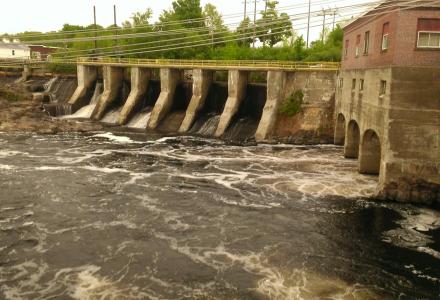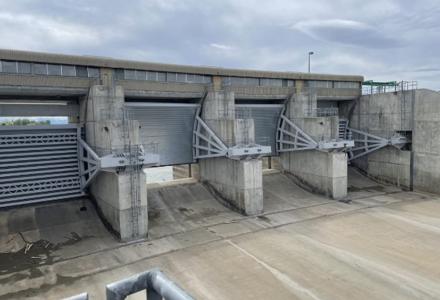
Currently in full swing, the Lake Champlain-Richelieu River flooding study is a major undertaking.
The five-year study brings together more than 80 science and policy experts on both sides of the border to examine and make recommendations on flooding and its impacts along the shores of Quebec, Vermont and New York. When the study board submits its final report to the IJC in 2021, its recommendations will be dependent on a thorough analysis of social, political and economic perceptions on flooding and its impacts in the basin.
The IJC has relied on science to make recommendations to governments since the Boundary Waters Treaty in 1909. This latest study, to cost US$5.6 million (CDN$7.5 million), is breaking new ground by using social science to gain information on current public, management and scientific attitudes toward flood prevention measures and placing that in an historical, social and political context.
“With a solid understanding of the impacts of flooding in communities on both sides of the border, the study board will be better positioned to recommend effective collaborative decision tools for municipal flood response managers as well as mitigation measures that are backed by public and political support,” says US Co-chair Keith Robinson.

According to Canadian co-chair Jean-Francois Cantin: “If the study can assure a level of public and political acceptability for proposed flood mitigation measures, there will be a greater chance that decision makers in various jurisdictions will implement the recommendations.”
A Social, Political and Economic analytical group is leading this aspect of the study’s work plan to:
- conduct an in-depth analysis of current social and political perceptions of structural and other flood mitigation measures
- look at the causes and impacts of flooding in the basin from a social dimension
- measure the economic impacts of flooding events.
Leading the analytical group are François Anctil, professor at the Department of Civil and Water Engineering of Université Laval in Quebec, and Curt Gervich, professor at the Center for Earth and Environmental Science at the State University of New York in Plattsburgh.
According to Anctil, “Our task is to gather hard data and then tell the story in a way that relates to the people who live in the basin. To do that, we will explore the social dimensions of the causes and impacts of flooding, view economic impacts from a human perspective and weigh those findings against the acceptability of proposed structural flood mitigation measures.”
Gervich adds, “Despite the resilience demonstrated by people during the devastating flood of 2011, we acknowledge the vulnerability that continues to be felt in the basin: the possibility of flooding places people’s homes and surrounding landscapes at risk, affects ecological resources and alters the economic viability of entire communities. We’re seeking to better understand what that means to people in the context of proposed solutions.”
The group will conduct a literature review, and organize a combination of surveys, interviews, brainstorming sessions and focus groups to gather and analyze pertinent information.
The idea of using social science to assess acceptability of flood prevention measures was first suggested in the IJC’s 2013 Plan of Study for the Identification of Measures to Mitigate Flooding and the Impacts of Flooding of Lake Champlain and Richelieu River. This report led to the request from governments to undertake Option B in the Plan of Study in September 2016.
The 2016 reference is the fourth time governments have asked the IJC to study flooding in the Lake Champlain-Richelieu River basin. Consult this story map to learn more about the history of the IJC in the basin. A lesson learned from prior efforts in the basin is that strong, ongoing consultations with the public and all levels of government are essential to identifying realistic and feasible solutions for residents.
To learn more about the study, visit ijc.org/en/lcrr. While there, be sure to subscribe to updates to receive news of upcoming events, consultations and study reports.



